|

|
LIFE AFTER
SOUTHCOM
Served with Headquarters, U.S. Southern
Command (in Panama or, since October 1997, in
Miami), Its Predecessor Commands in Panama, or Its Component Commands
(Those who served in Panama
denoted in black / Those who served elsewhere since
1997 denoted in blue)
|
Arnold, General of the Army and Air Force Henry "Hap" H.
(U.S.
Air Force, retired - deceased) (Organized the 7th Aero Squadron in the
Panama Canal Zone February-March 1917 and commanded it until May
1917) -- Since becoming one of America's first military aviator
in 1911, Arnold's career paralleled the growth of America's air power as one of its most ardent
promoters, with his personally contributing
to most of the major milestones of the development of air power
until he retired in 1946. He is recognized as the
architect of America's Air Force. Following several
increasingly important assignments, he was promoted to major
general and appointed chief of Air Corp Sept. 1938 (changed to chief of the
Army Air Forces on June 1941); commanding general of Army Air Forces
in 1942 as lieutenant general; promoted to four-star general in
1943; and in Dec. 1944 promoted to
five-star General of the Army. Thus prior to and
throughout World War II, he directed air activities of the nation's
war against and victory over Germany and Japan. In May 1949,
by act of Congress, his rank was redesignated General of the Air
Force (five-star rank), thus becoming the only military officer
holding two five-star rank.
(For more information go to USAF
biography at http://www.af.mil/bios/bio.asp?bioID=4551
and another
biography.) |

Henry "Hap" Arnold |
| Braaten,
Major General Thomas A. (USMC retired) (from July 1988 through July
1991at Southern Command as Chief of Current Operations, Deputy Director
for Operations, Vice Director of the J-3/Operations Directorate, and
Deputy Chief of Staff, SouthCom) retired in 2001 after last serving
simultaneously as
Commander, Marine Corps Air Bases East and Commanding General, Marine
Corps Air Station Cherry
Point, 1998-2001. Previous assignments since leaving Panama included
Deputy Commanding General, II Marine Expeditionary Force, Camp Lejeune,
N.C.; Assistant Deputy Chief of Staff for Installations and Logistics
(Facilities), HQ Marine Corps; and Assistant Deputy Chief of Staff for
Programs and Resources (Programs), HQ Marine Corps, Washington, D.C. In
retirement he was president and CEO of the Twin Rivers YMCA in North
Carolina 2001-2006 and currently director of Craven County (North
Carolina) Regional Airport Authority. |

Thomas Braaten
|
| Bryan,
General Blackshear M., Jr. (Army-retired-deceased) - Chief
of staff of the Caribbean Command at Quarry
Heights
1948-1951 initially under Lieutenant General Matthew Ridgway,
then took command of the
24th Infantry Division in
Korea
in 1951 at the request of
his mentor General
Ridgway despite not having any combat experience.
After a year in Korea, served as Deputy Chief
of Staff for the Far East Command in Tokyo
before commanding the XVI
Corps in Japan; then participated on the
military armistice commission of the United Nations Command
Component that concluded hostilities in Korea
in 1953, followed by
commanding the I Corps in Korea. He
served as the 43rd superintendent of the U.S. Military
Academy at West Point 1954-1956, followed by commanding the U.S.
Army, Pacific, based in Hawaii, 1956-1957, then served as Commanding
General, First Army, in Governor's Island, New York, before
retirement from the Army.
|

Blackshear Bryan, Jr. |
| Cisneros, Lieutenant General Marc
A. (U.S. Army retired) (Director of
Southern Command J-3/Operations as
Brigadier General 1987-1989 and Commanding General of Army South 1989-1990
as frocked Major General; earlier assignments in 1978-1981 as a Lieutenant
Colonel with SouthCom J-3 and later as Deputy Commander of Army South in
1986-1987) as Coronel; retired in 1996 after two years as Commanding General of
Fifth United States Army at Fort Sam Houston, Texas. Previous assignments since leaving Panama
were Deputy Commanding General, III Corps at Fort Hood, Texas and Deputy
Inspector General, Investigations and Oversight, Office of the Secretary
of Army, Washington, D.C.,1992-1994. In 1997, he was named one of the "100 Most
Influential Hispanics" by Hispanic Business Magazine which honors
Hispanic Americans who have made a positive impact on the Hispanic
community and who have made lasting contributions in their chosen fields.
He was president of Texas A&M University-Kingsville 1998-2001 and in
2005 was honored when the university’s Center for Young Children was
dedicated in his name. He was credited with securing the funding to build
the new facility which replaced the previous building that had housed the
school for 60 years. Since 2005, he is chief executive officer of the
Kenedy Memorial Foundation in Corpus Christi, Texas. (Go
To article featuring his role in Operation
Just Cause, the invasion of Panama, December 20, 1989;
Go To Panamanian editorial on his contributions in
restoring democracy to Panama; and Go
To for background on his not getting SouthCom's
commander-in-chief post in 1996.) |
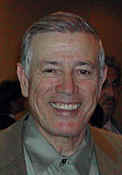
Marc A. Cisneros
2005 |
| Clark, General Wesley
K. (U.S. Army retired) (Commander in Chief U.S. Southern Command, June 1996 –
July 1997) served as Supreme Allied Commander, Europe (SACEUR)-North
Atlantic Treaty Organization (NATO) and Commander in Chief, European
Command July 1997 - 2000. As such, he was the senior commander
prosecuting the war over Kosovo (March-June 1999) in directing NATO’s
Operation Allied Force (a 19-nation alliance) in the successful 78-day air
campaign against Yugoslavia which defeated strongman Slobodan Milosovic
and ended his brutal campaign of ethnic cleansing. After retiring from the
Army in 2000, Clark was managing director of investment banking for
Stephens Inc. in Little Rock, Arkansas, and chairman and chief executive
officer of Wesley K. Clark & Associates, a strategic advisory and
consulting firm, also in Little Rock. Clark also was a military analyst for
CNN during the wars in Afghanistan and Iraq and the follow-on
reconstruction there. His book, Waging
Modern War: Bosnia, Kosovo, and the Future of Combat,
was published in 2001. In August 2000, he received from President Clinton
the Presidential Medial of Freedom, America’s highest civilian award,
for his role as a key negotiator of the Dayton Peace Accords and as head
of U.S. European Command/NATO. He ran in the 2004 Democrat
primary for President. He is a senior fellow at UCLA's Burkle Center
for International Relations. |

Wesley Clark
|
| Conner,
Major General Fox (U.S. Army retired-deceased) (Commander of the
20th Brigade at Camp Gaillard, Panama Canal Zone 1921 -
1925) after leaving Panama served as the Army's deputy
chief of staff, held command in Hawaii, and in 1933 was assigned by
President Franklin Roosevelt the task of mobilizing approximately
24,000 young men and World War veterans for the 125 Civilian Corps
companies in the six New England States, and retired from the Army
in 1938 after serving his country for forty-four years. Conner was
best known for his influence over such Army Generals as John
Pershing, George Marshall, George Patton, and, particularly, Dwight
Eisenhower, all who revered Conner and his work. Conner died
October 13, 1951 at the age of 77 -- a year before Dwight
Eisenhower was elected President of the United States in 1952.
(For
more go to biographies
on external site) |
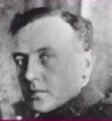
Fox Conner |
| Craddock,
General Bantz J.
(Army) (Commander, U.S. Southern Command in Miami (Nov 9, 2004 - Oct
19, 2006) is Supreme Allied Commander, Europe (SACEUR)-North
Atlantic Treaty Organization (NATO) and Commander, European
Command since October 2006. |
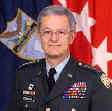
Bantz Craddock |
| Craig, General
Malin (U.S. Army retired-deceased) (Commander of the Panama Canal
Department 1928 - 1930; previously with the Panama Canal Division),
was Army Chief of Staff (October 1935- August 1939). He was succeeded
in the position by General George Catlett Marshall. |

Malin Craig
|
| Curtin,
Colonel Joseph (U.S. Army retired) (Public Affairs Officer,
U.S. Army South, Fort Clayton 1995-1998) after leaving Panama
commanded 704th Military Police Battalion at Fort Lewis, Washington,
1998-2000; was speechwriter for the Commander in Chief, U.S. Forces
Korea at Seoul, 2000-2001; and, after attending the U.S. Army War
College, was division chief of Media Relations Division of the
Office of the Chief of Army Public Affairs 2002-2006. |
|
| Donlon,
Colonel Roger Hugh C. (U.S. Army retired - MOH-Vietnam
1964) commanded the 3rd Battalion, 7th Special
Forces Group (Airborne), at Fort Gulick, Panama (1977-1978). (For details
on MOH Go To) |
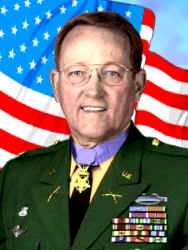
Roger Donlon
(MOH)
|
| Doran, Admiral Walter F.
(U.S. Navy retired) (Deputy Commander in Chief and Chief of
Staff of Southern Command from December 1996 through July 1998)
commanded the Seventh Fleet August 1998 to September 2000, served as
Assistant to the Chairman of the Joint Chiefs of Staff September 2000 to
May 2002, and Commander of the U.S. Pacific Fleet, 2002 - 2005,
responsible for the
world's largest combined fleet command. After retiring from the Navy, he
joined Raytheon Company in 2005 as Navy Service Executive,
responsible for helping Raytheon identify and provide appropriate
resources to pursue Navy strategic growth opportunities and being
the company's internal U.S. Navy subject matter expert, explaining
the Navy's transformational goals and forming a direct link to
Raytheon's businesses to help the company shape integrated mission
solutions to address customer needs. |
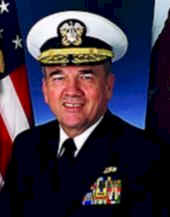
Walter Doran
|
Eisenhower,
General of the Army Dwight D. (U.S. Army
retired-deceased) (Executive
officer to General Fox Conner, commander of the 20th
Brigade, Camp Gaillard, Panama Canal Zone January 1922 - September
1924 as a major) -- Significant general officer and other assignments after
leaving Panama included Assistant Army Chief of Staff in charge of
War Plans; commanded the Allied invasion of North Africa November
1942 - May 1943; directed the invasion of Sicily in July - August
1943; commanded the invasion of Italy in September 1943; Supreme
Commander of Allied Expeditionary Forces to command Operation
Overlord 1944 - 1945 (the invasion of Europe, spearheaded by the
invasion of Normandy on June 6, D-day); promoted to five-star
General of the Army in 1944, commander of the United States
occupation zone in Germany in 1945; and
Chief of Staff, United States
Army 1945 - 1948. After retiring from the Army in 1948, he wrote Crusades
in Europe; president of Columbia University 1948 - 1950; Supreme
Allied Commander of the North Atlantic Treaty Organization (NATO)
1951 - 1952; and the 34th President of the United States 1953
- 1961. In 1961, Congress re-instated his five-star rank (he
resigned his commission in the Army to accept the Presidency.)
He died in 1969. (For more details go to.)
|
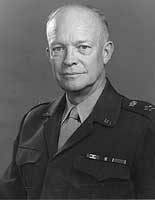
Dwight Eisenhower
|
| Fetig,
Colonel James
(U.S. Army
retired) (Director of Public Affairs, U.S. Southern Command 1993-1995)
was named associate
vice president of Institute Communications and Public Affairs of Georgia Institute of Technology in Atlanta April 2006. Since
leaving Panama, he had been director of public affairs for the
National Security Council at The White House and deputy White House
press secretary (1995-1997).
Assignments since retiring from the Army in
1997 had been vice
president of public relations for Lockheed Martin Corporation in
Washington, D.C.1997-2002 and vice president of media relations of Raytheon Company, Waltham,
Massachusetts 2002-2006. |
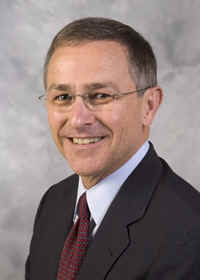
James Fetig
|
| Galvin,
General John R. (U.S. Army retired) (Commander in Chief,
U.S. Southern Command, March 1985 – June 1987), was Supreme Allied
Commander, Europe (SACEUR)-North Atlantic Treaty Organization (NATO) and
Commander in Chief, European Command 1987- 1992 (during the last five
years of the Cold War). There he played a central role in many defining
events, including the Gulf War, the redesigning of NATO strategy,
humanitarian support in Central and Eastern European nations, the rescue
of 450,000 Kurdish refugees in northern Iraq, East-West negotiations on
arms control, and U.S. military operations in Zaire, Liberia, and other
African nations. Following retirement from the U.S. Army in 1992, he had
served as Special State Department Envoy (rank of Ambassador) to Bosnia to
assist in the negotiations in Bosnia. Following retirement from the Army,
he was The John M. Olin Distinguished Professor of National Security
Studies at the United States Military Academy ( West Point) in 1992-1993,
later Dean of the Fletcher School of Law and Diplomacy at Tufts
University, Chair Emeritus of the American Council on Germany, and
Distinguished Policy Analyst, Mershon Center, Ohio State University.
He was one of the commissioners on the U.S. Commission on National
Security/21st Century (Hart-Rudman Commission), chartered as a Federal
advisory committee by the Secretary of Defense in 1998 to provide the most
comprehensive government-sponsored review of U.S. national security in
more than 50 years. He has published several books (The Minute Men, Air
Assault, and Three Men of Boston) and articles on U.S. military
strategy, transatlantic relations, and the future role of NATO. |

John Galvin
|
| Gaylord,
Brigadier General Robert E. (U.S. Army retired) (Commander
of the Southern Command Radio and Television Network (SCN) in Panama in
1988-early 1990), is currently Chief Executive Officer of the Leader to
Leader Institute (formerly
the Peter F. Drucker Foundation
for Nonprofit Management)
in New York City after retiring from the Army in January 2005.
Previously he was the Chief of Army Public Affairs, Department of the Army
at the Pentagon 2003-2005, after having served as Deputy Chief of Army Public
Affairs 2002-2003.. Earlier commanded
Army broadcast networks also in Saudi Arabia and in Europe and served in the
Army recruiting arena as Deputy Commanding General – East. |
|
| Geiger,
Colonel Melvin H. (Army-retired)
-- (Public Affairs Officer of 193d Infantry Brigade (Canal Zone)
(August 1975-July 1978 at Fort Amador), which was then the senior
Army command in Panama and the Army component of the U.S. Southern
Command). After departing Panama he was the Public Affairs
Officer for the John F. Kennedy Center for Special Warfare at Fort
Bragg, North Carolina (during which time he handled the press after
the failed April 4, 1980 U.S. military commando operation to rescue
several hostages in the U.S. Embassy in Tehran after the Embassy had
been taken over on November 4, 1979 by a group of Iranian militant
students after the fall of the Shah of
Iran). After retiring from the Army in August 1980 as a
Colonel, he served as a specialist in Islamic Affairs with the
Defense Intelligence Agency until he retired from the DIA in 1997. After
9/11, he returned to duty with the DIA from January to September
2002. |

Melvin Geiger |
| Goodpaster,
General Andrew J. (U.S. Army retired-deceased) (Captain
with the Army Corps of Engineers' 11th Engineer Regiment at Fort
Clayton, Panama, in 1942) -- In 1944 Goodpaster while with the
Army General Staff became closely
associated with Army Chief of Staff Dwight D. Eisenhower and later joined
Eisenhower at NATO, serving as assistant to the chief of staff,
General
Alfred Gruenther. In that capacity Goodpaster played a major role in
helping to organize NATO forces and define the political and
military aims of the fledgling alliance. In 1954 Goodpaster
joined President Eisenhower as staff secretary in the White House. Following the end of
the Eisenhower administration, Goodpaster returned briefly to
Europe, serving as commander of the 8th Infantry Division. He served as a
special assistant to the chairman of the Joint Chiefs of Staff,
General
Maxwell D. Taylor; later was director of the joint
staff of the Joint Chiefs of Staff. In 1967 he was chosen to
be the Army representative on the United Nations Military Staff
Command. From July 1967 to June 1968 he was commandant of the
National War College. Later he commanded the 8th Infantry
Division in Europe. From 1969 through 1974 Supreme Allied Commander
(NATO) in Europe. After retirement from the Army in 1974, he was
recalled out of retirement in 1977 to serve as superintendent of West Point
until 1981 in the wake of a cheating
scandal that had severely tarnished its reputation. |
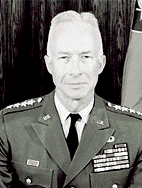
Andrew Goodpaster
|
| Gorman,
General Paul F. U.S. Army retired) -- Since his retirement from
the Army in 1985, General Gorman has operated a consulting, research
and development firm at his farm, Cardinal Point in Afton, Virginia,
where he also raises cattle and wine grapes. He has served with
three White House Commissions: the Commission on Organized Crime,
the Packard Commission on Defense Management, and the Commission on
Long Term Integrated Strategy. He is also a consultant for the
Institute for Defense Analyses and the Defense Science Board, and an
Assistant Professor for Research in the Department of Neurosurgery,
UVA's
Health
Sciences
Center
, dealing with issues concerning advanced information technology for
health care. General Gorman has been an innovator in the Army's use
of information technology, both on active duty and since. In 1995
the Society for Computer Simulation International presented him its
Founders Award for Distinguished Service, citing "his many
pioneering contributions to the methodology and application of
simulation to military defense and preparedness."
|
|
| Gottardi,
Major General Larry (U.S. Army retired) (Director
of Southern Command's Liaison Office in Washington, D.C. in early
1990s; later Director of Public Affairs, SouthCom 1995-1997 - the first director of SouthCom's Public Affairs
promoted to major general
officer rank) retired from the Army January 2006 after having served as
deputy chief of staff, G-1/Personnel of U.S. Army Forces Command at Fort
McPherson, Georgia. After leaving Panama, he was deputy commanding general of
the Army Cadet Command, commanding general of XVIII Airborne Corps
Artillery, and Chief of Army Public Affairs, Department of the Army at the
Pentagon. (While commander of the 319th Field Artillery, 82d
Airborne Division, he participated in Operation Just Cause in Panama
December 20, 1989,
parachuting with his unit and others of the 82nd over Torrijos/Tocuman
Airport at the outset of the operation.) |
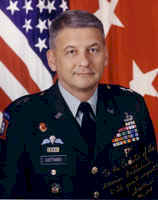
Larry Gottardi
|
| WANT TO BE ADDED TO
THIS ROSTER? |
|
VISIT ALSO: |
| Send WHO
details of career assignment(s) after assignment in
Panama |
|
ASSIGNMENT PANAMA |
| This
page last updated: December
27, 2008 |
 |
| Site
developed, owned and maintained by |
| William
H. Ormsbee, Jr. |
| 1999-2001
/ 2002-2009 |
|